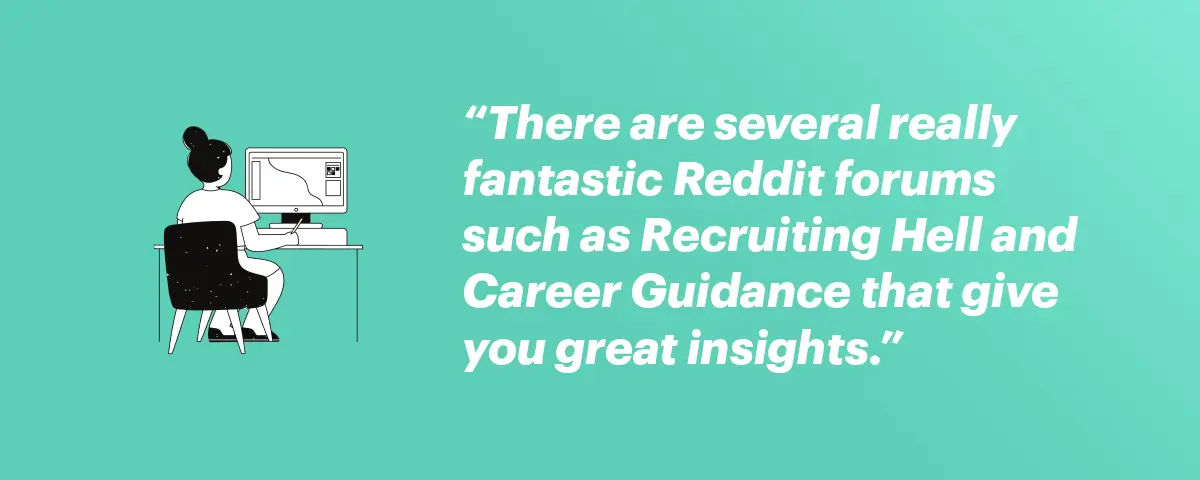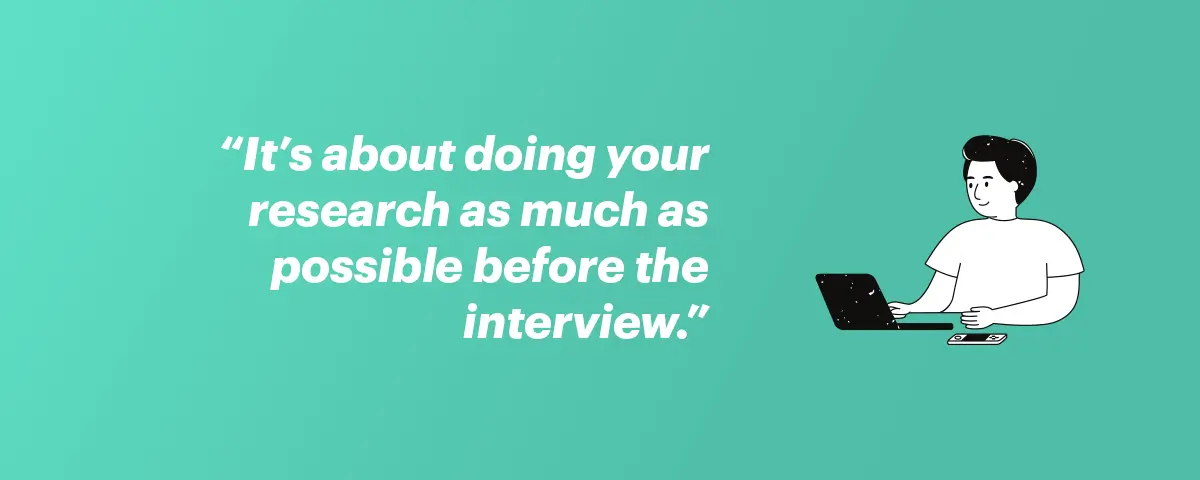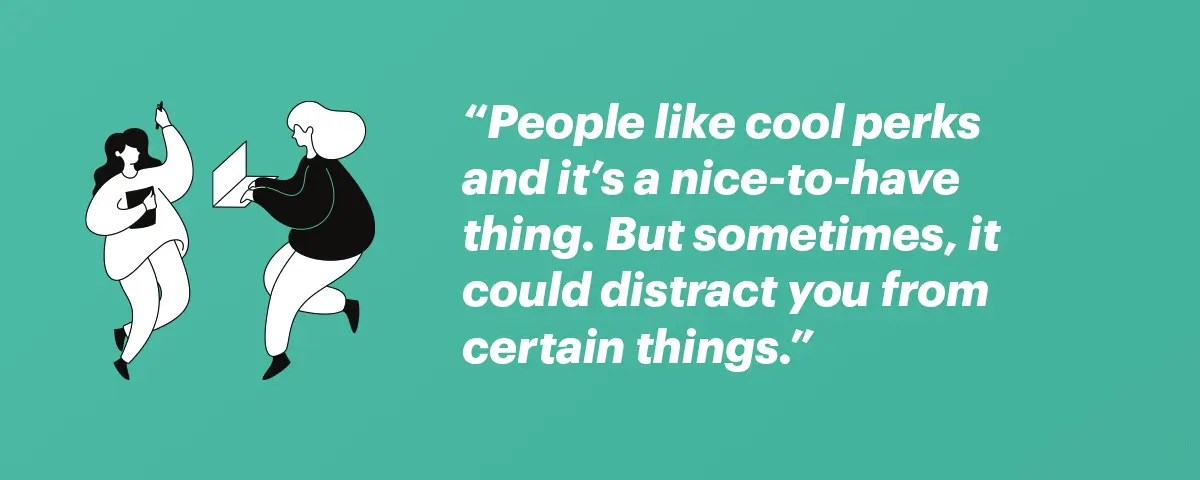Imagine you could get solid job search advice directly from someone with experience in recruiting and HR. Wouldn't that be helpful? Now you can do just that thanks to our new interview series Recruiter Reveals! Every month I interview our resident HR expert Christy Morgan on various job search topics — be it resumes, cover letters, job interviews, or anything marginally career related. |
Job search is always a two-way street.
You aren't in it just to be chosen, you're someone who chooses as well.
But how do you choose your next workplace well? And how do you make sure you don't end up in a toxic workplace?
The thing is that sometimes, until you actually join the company, you have no way of knowing that for certain. Still, there are a few techniques that can help you identify a toxic workplace before accepting a job.
We're going to tell you what are the biggest workplace red flags and where to look for them.
In this interview, you'll find out:
- What's a toxic workplace;
- What techniques can help you identify it;
- Where to look for major workplace red flags;
- How many workplace red flags are simply too many;
- What should you do when you only realize it after accepting the job;
- How both Christy and I got fooled as teenagers.
What is, in your opinion, a toxic workplace?
This is an interesting question because when you say the word “toxic”, we automatically imagine a workplace where there's a lot of drama and negativity. But actually, this isn't that common. The stuff that we might call toxic are smaller things that add up.
For example, favoritism, not getting deserved pay rises that you asked for, not getting that promotion because somebody less qualified got it. Or maybe having to deal with some petty-level internal politics that creates an unpleasant environment — which is by far the most common type of toxic undercurrent in the workplace.
And then it goes all the way up to the dramatic scenarios where managers are shouting and screaming like in a Hollywood movie. It doesn't happen that often, but it does. So, the toxic environment is from the little stuff to big problems.
Are there any signs or toxic workplace red flags that you can look for before accepting the job?
Yes, especially now with the internet and social media it's so much easier. You have sites like Glassdoor, Comparably, or Blind. People even put reviews on Facebook pages and internet forums. For instance, there are several really fantastic Reddit forums such as Recruiting Hell and Career Guidance that give you great insights because people share experiences that you wouldn't know otherwise. And there's a lot of toxicity going on!
So, it's about doing your research as much as possible before the interview. But even then, sometimes you just won't know until you’ve been there for a while and see patterns emerging.
Can you tell me a bit more about how you can identify a toxic workplace? What techniques can you use to spot it before it's too late?
Checking things like I mentioned — Comparably, Blind, Glassdoor, online reviews and internet forums. That's where you can do your research and find out a lot. Of course, don't just rely on only one website, as companies may pay to have bad reviews deleted. Also, every company will have some negative and some positive reviews because that's just the nature of humans. But usually, you can see a general pattern there. And you should take that into consideration.
You can even check out a company's social media accounts, Google or Trustpilot reviews and see what people are saying about them. Just get as much information as you can and try to filter it.
Is that the environment you want to work in? Does it sound suspicious to you? Is that what you would classify as toxic? Because some people might say “This is a toxic environment, they made us work and pushed us to do more.” However, for a sales person or somebody else, that may sound fantastic. Those are the things you want to take into consideration as well, but there's lots of resources out there to get some clues about what companies are like.
Does it also make sense to check if someone in your network works at that company and ask them?
Yes, for sure. Reach out and ask them. But again, don't take it as an absolute truth about what it's like there because their experience may be completely different from others or yours. Just take it all together with other things you find out during your research, and use your instinct and judgment.
What about various news reports? That's also something that can be a part of the pre-interview research.
Yes, very true. Some of it may not be relevant for your particular office, but you can find useful background information about the culture. Leadership does set the culture tone, so the types of people that are running the company give you an indication of the types of people, behaviors, and values that are tolerated or expected in the organization.

Does it also help to ask the right questions at the job interview? They can also help you guess what's going on in the background, right?
Yes, that's a part of it as well. So, firstly do your research about the company, tap into your network and then in the job interview, feel free to ask questions.
For instance, something you can ask is why the position is available — that may give you some insight into the turnover rate in this particular position. Or ask them in their opinion, what the culture is like. If they say that people there work hard and play hard, and if you're looking for a reasonable work-life balance, you'll know it may not be the right fit for you.
Is there anything else or this is the maximum you can do as a job seeker?
One more thing you can do as a part of your research is to try to check the previous person who might be leaving the position. Just take a look at LinkedIn to see how long they were in the job, and try to find anyone else on LinkedIn who held this role before them. If it's a short amount of time, that might indicate that there's something going on. It can also give you insights into if the person did the things that are listed in the job description, or if the actual scope differs.
Also pay attention to how they treat you as a candidate. How do people seem to be when you walk into the interview? Are they engaged and welcoming? Do employees interact well with each other? Are they in a hurry to get the interview over quickly? You can get clues from that as well.
I mentioned in a previous Recruiter Reveals that I had a client who was doing a panel interview. Only the main interviewer was asking questions; the others were not interested and spent most of the time on their phones. This, in my opinion, shows they're not interested in the organization, or the team, or the product. A bad interview like this is a huge red flag for me.
Are there any workplace red flags that you look for before even applying for a job? For instance, some resources say that a very vague or long job description is a red flag. What's your take on that?
Not necessarily. It might indicate they don't exactly know what they want from the person, or they’re a bit disorganized. Let’s say it's more a yellowish flag than a red one. If something is not clear, you can ask them at the job interview.
What if the job description only mentions job responsibilities and says nothing about what the company can offer you?
Not necessarily a red flag, because many companies are just not good at writing job descriptions. Sometimes, they just want to get the job ad out fast, and just use the same old description they’ve always used. Not a smart practice, for sure, but not necessarily a red flag.
What if their communication is unprofessional or they contact me later than they promised?
I would take that as a red flag for sure. I don't know how massive it would be, but I would certainly be keeping it in mind and keep a close eye out for other signs. Because if they don't communicate effectively, it could be just that one individual. But if you get that from the rest of the company and people that you're interacting with, then communication is probably not their thing. And that's for sure a red flag. If they don't treat you with respect at the beginning, they'll treat you the same as an employee.
What other workplace red flags to notice in this interview stage?
Things like whether they stick to their promises when they say they'll get back to you within a week. Or when it comes down to the offer, do they try to offer you less than you wanted?
What if they suggest a lower salary and say it will be made up for later?
That's a red flag. I think that shows a lack of respect, or worse.

I've also read somewhere that some people think that if a company is unable to outline a career track, it's a red flag. But is it? For instance, startups don't have a corporate structure.
Yes, exactly. Startups are just like that. You don't know if you'll be there in five years, you're just starting up. The same for companies that are in the post-startup ramp-up phase. So, I don't think it's a red flag. In that case, I'd just focus on where they see the company going.
And if it's at an established company and you ask the first-stage interviewer, they may not specifically know what the current options for your position are (although they probably should, if they’re interviewing you!). So, it may be a question mark, but not a massive red flag.
What if they begin to ask you personal questions that have little to do with the job?
This is for sure a red flag. This has happened to me personally many times as well. Even on Reddit just this morning, I read a post by someone asking if it's normal for the potential company to ask for your social media account passwords. Well, this definitely isn't OK. You should never give your passwords, or be pushed to show them your personal profiles. Treat it as a huge red flag if they ask.
However, asking personal questions also depends on what country you're in. In certain countries, you can ask certain questions such as marital status, date of birth, religion, children, and so on. For instance, in Germany it's used for informational purposes and it's not considered discriminatory. But otherwise, I think that if they ask you such personal questions, it's because they're trying to filter you out, or they are quite audacious and don’t recognize acceptable boundaries. Would I want to work for a company where they're that intrusive? Certainly not.
And what if they offer you the job on the spot?
Well, that's a pretty good one. I think in most cases that's a red flag. That's common, for example, with MLMs and scams. I was reading something this morning from a person who was looking for remote jobs, saw a suitable ad and applied, did a video interview with “HR” which went very well, they talked to the “manager”, and were offered a job on the spot. The candidate thought, as many people might, that with work-from-home becoming more of a thing, the whole process can move much faster.
While waiting for their contract, the company sent the candidate a check so they could start buying work-from-home equipment generously included in the offer. They advised the candidate to take it to the bank, and gave them their equipment supplier’s contact info to send the money on to. Unfortunately, it turned out to be a fake check. It happens far too often that people will spend their own money in the meantime on such supplies, assuming the funds will be returned when the check clears. Then the bank says a few days later, “Sorry, this is a fraudulent check.” They take the money back from you and you're out of money. And still jobless.
And there are loads of scams like these. So, if they offer you a job on the spot, I'd be cautious. If it's too good to be true, it probably is.
Ouch! But I imagine that startups or smaller companies are the exception, since their hiring process isn't as long as it is with corporations.
Yes, that can be. Especially with younger companies and staff who don't want to be “corporate” people. They want to be spontaneous and flexible. But you'll meet them in person, you can talk with them, ask questions. For instance, the person from the story didn't meet them in person at all. Mainly do your research and this way you can make sure it's a legitimate company. You can even try to call the company directly from the info off their website to make sure you’ve not been given a fake number.
How many workplace red flags is too many? When should you begin thinking that you probably don't want to work for that company?
It depends on what those workplace red flags are. For instance, if it's the communication of the HR person, it's likely a red flag for me, but it may not be a deal breaker. But if you're getting consistent lack of communication or ghosting from several people, plus there are other factors like the way they talk to you, the job description is a bit vague, you've read a few bad reviews on Glassdoor — that's enough to tell that you don't want to work for such a company. But mostly, it's up to you and when your instincts start kicking in.
Has it ever happened to you that you accepted a job and one or two days later you realized that it's not what you thought it was?
Yes, it happened to me as a teenager. I got the travel bug early and there was this job about selling books. The company seemed to be legitimate. The job was basically selling books in rural communities, door to door. I like books and travel, so I thought it was quite interesting, even if the pay was quite low. But I was a teenager, I just wanted to get away and do things. So, I said okay.
But deep inside I thought it wasn't right. Still, I was young and naive. In the meantime, after accepting the offer, I heard a rumour that someone was raped doing that job. I'm not sure if it was by an employee or someone else, but it was while doing this job. So, then I backed out.
That's horrible! I also got fooled as a teenager when I accepted a job without a contract and then didn't get paid.
I’m sorry to hear that! Oh yes, that's another red flag when they offer you a job without a contract. This happens many times to younger people who are inexperienced and think it's normal. I guess that's where websites and resources like Glassdoor come in super handy, as they give you some insights and clues.

Is it common for job seekers to get blindfolded by various perks and overlook serious workplace red flag?
Of course, people like cool perks and it's a nice-to-have thing. But sometimes, it could distract you from certain things. I'll use Google as an example.
There was a documentary where a reporter went in and looked at Google’s people methodology and how it's all about productivity. They interviewed ex-employees to get their insight, too. I remember a guy who had really positive things to say, but he felt like at the end of the day, all these perks like table tennis, gourmet food, free transport — all that stuff didn't make up for the fact that he was doing something other than he wanted to when he joined — he thought he’d be able to focus on certain initiatives, but in the end he couldn’t. It took time to realize that. I guess all those amazing benefits can make it hard to see what’s not working, sometimes.
In the end, such perks can be an orange flag. They’re addictive. And when you go back to the “normal” work world one day, it's harder to get used to it.
Do you think that companies are good at covering up these toxic environments? Or is it that job seekers can sense it most of the time?
Well, you can sometimes sense that something's not right. But sometimes, until you join the company you may not know. However, regarding covering up the toxic workplace, I feel like sometimes companies just don't know. Leadership doesn't always know about people playing favorites, internal politics, workplace affairs, stuff like this. So, maybe it's not that they're covering it up. Maybe they just aren't aware. But there are also managers who tend to ignore it.
What should you do if you've already accepted a job, you start working and after a few days you realize that it's a toxic environment?
It's going to depend on the person. Some people may say “I don't like it here, but it's just work. I can deal with it. It's going to be for just a year and I'll make some good money.”
Then there's the other half that will say “I don't want to work in this environment. I don't like it.” Most jobs usually have a probation or trial period. So sometimes, you can give your notice and immediately get out. Or you can use the probation period to find another job. I think there's no shame or anything negative about getting out. And if you get out soon enough, then you don't have to put that company on your resume. And maybe there'll be a very small gap between the previous or the next job and you can just say you were looking for a new job during that gap.
But I think that if you realize it's a toxic environment, and you feel like this is not a place for you, it's better to get out as soon as possible.
What if you had already accepted a job offer but then you realized that the company is toxic? Is there a way to gracefully turn down their offer?
It depends. If you already signed a contract or if they just presented you the offer. If they only offered you a job, you can say something like “I've got another great opportunity which is closer to my home. Thank you for considering me, I really appreciate it. I wish you the best.” They may not be happy about it, but these things just happen.
Key takeaways: Workplace red flags
How to research a company:
- Research the company on sites like Glassdoor, Comparably, or Blind. Also, skim through their social media accounts and reviews on Facebook, Google, Trustpilot and other internet forums.
- Try to find a person who previously worked on that position. Take a look at their LinkedIn profile to see how long they were in the job.
- Check your network for people who work at that company and ask them for their opinion.
- Ask the right questions at your job interview — e.g. why the position is available, what's their company culture, etc.
What are the major workplace red flags?
- Bad employee reviews
- If they treat you poorly as a job candidate
- Unprofessional or lack of communication
- They suggest a lower salary and say it will be made up for later
- They ask personal questions
- They offer you a job on the spot (unless it's a startup or a small company)
- They want you to work without a contract




